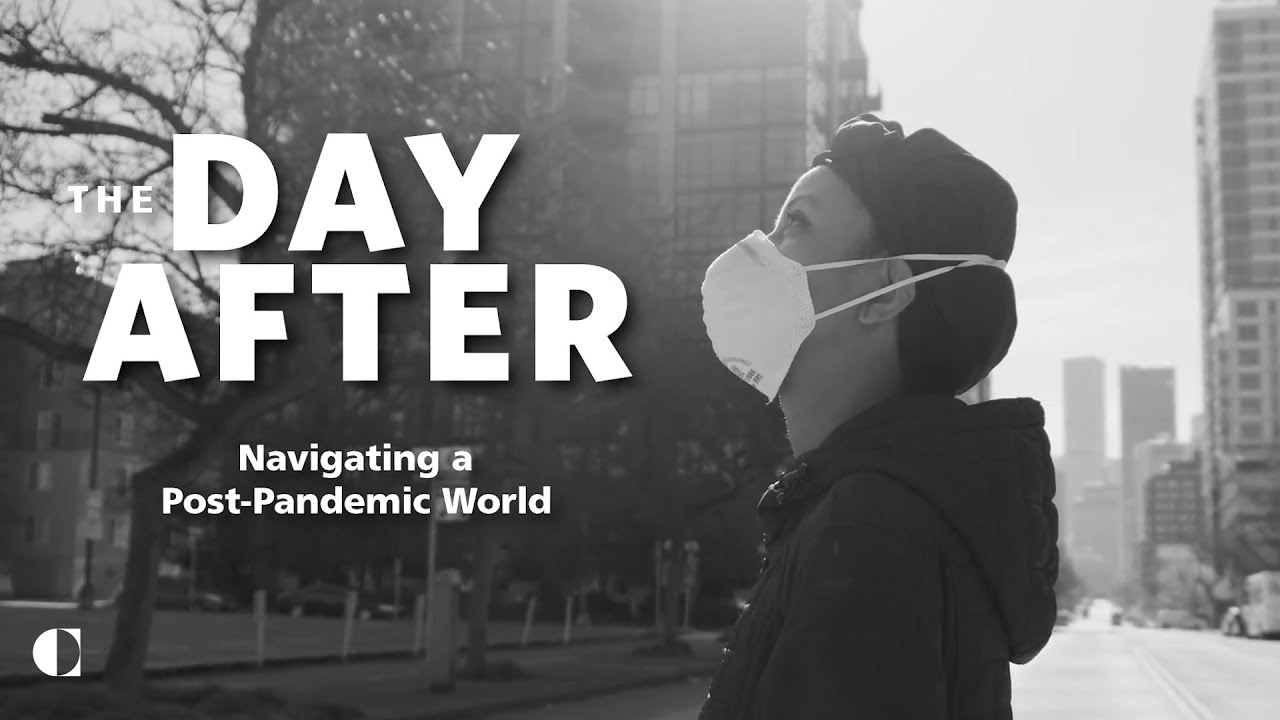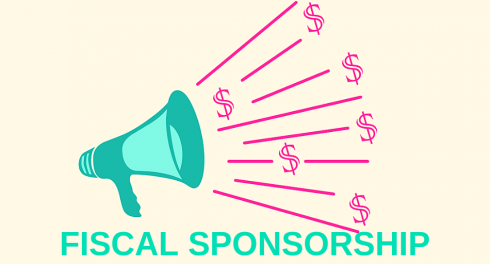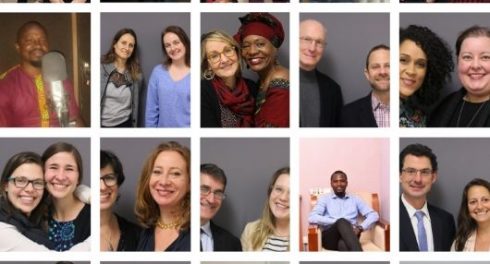An Abba theme to this Weekly…
Highlight
- Money, money, money
- The winner takes it all
- One of us
- The name of the game
- Hole in your soul
- (Don’t) Take a chance on me
- TAI Spotlight: Launching our transparency, participation, and accountability strategy refresh
Money, money, money

Photo by Istock Photo via U.S. News
It has been interesting to see the pandemic give impetus to debates on a rethink of how our economies work and who whose benefit. This new Reset campaign by the B Team group of progressive companies is a great case in point – check out the messaging in Time Square, New York, and the message from CEO Halla Tomasdottir on how to react as the next generation rightly demands more accountability.
One element ripe for an accountability rethink is taxation – TAI sat in some interesting discussions on extending the Fair Tax Mark globally this past week. All illustration of voluntary steps firms can take, while international discussions continue on reforming a broken system. With an eye on Big Tech, German Finance Minister Olaf Scholz is hoping for an autumn breakthrough on a global deal to “prevent a global conflict over the digital tax from breaking out.” French Tax Minister Bruno La Maire says the US is undermining ongoing negotiations and urges Europe to put an EU tax in place early 2021 if an agreement can’t be reached in the OECD. Indonesia has charged ahead though, adding Zoom and Twitter to the list of companies to pay a 10% VAT on sales.
The winner takes it all
What of public attitudes? A new Tax Justice UK report highlights a shift in support for higher taxes to fund public services that extends to conservative voters. We doubt the UK public is alone in that shift. Concern over inequality is no doubt also part of the picture and with good reason. Across the Atlantic, the Wealth-X Billionaire Census 2020 revealed that “the number of billionaires in technology, insurance, business services, and health care grew by between 6 percent and 9 percent during the first five months of 2020.” Since the launch of the billionaires Giving Pledge in 2010, those pledging have seen their combined wealth double.
Yes, some of the wealthy are turning to philanthropy (it seems COVID-19 philanthropists tend to be wealthier and younger), but it prompts Vu Le to asks how the non-profit sector is complicit in enabling wealth hoarding and perpetuating inequitable systems. Awkward questions for NGOs extend to relations with the state. Howard Hussock argues that a truly independent nonprofit sector should not seek to partner with government. Instead, it should identify and address community needs that aren’t met by legislative bodies.
Essential Read: The Day After: Navigating a Post-Pandemic World
Carnegie has convened its global network of more than 150 scholars from twenty countries and six global centers to produce “The Day After: Navigating a Post-Pandemic World”—a digital magazine that provides grounded, fresh analysis and new approaches to some of the most consequential challenges unfolding. See content on revitalizing democracy, women’s political empowerment, corruption and more.
One of us
What of dynamics among civil society themselves? If INGOs consider sustainability in their planning, exit can be a good thing for local civil society, says Emmanuel Kumi as he encourage INGOs to consider how they can empower local partners to engage with local sources of funding as many are likely faced with funding cutbacks and inflation rates that complicates international funding of NGOs. Lisa Cornish argue for investment in capacity building, including indigenous-to-indigenous partnerships and indigenous access to development procurement opportunities.
Looking for honest discussions about failures in social impact work? India Development Review and Acumen Academy has launched a series of reflections on failure and lessons that emerge – many reflect on funder or funding relationship.
Meanwhile, check out the six winners of the digital rights initiatives to be funded by Indela across South America. [Indela’s steering committee includes representatives from TAI member organizations – Luminate, Ford Foundations, and Open Society Foundations.]
On the donor side, Justin Moore urges folks at the new UK Foreign Commonwealth and Development Office to ensure a more coherent policy to aid collection and publication of complete relevant data on anti-money laundering, debt, asset return, and multinational enterprise transparency.
The name of the game
Last week, we dug into research on trust – a quick follow up from Rosemary DiCarlo, who argues a breakdown in public trust, while a problem before the pandemic, now has the potential to drive instability in settings where people perceive authorities have not addressed COVID-19 effectively or have not been transparent about its impact. In an illustration, a nationally representative survey of households in Kenya captures growing risk of violence and conflict in the country and declining approval for government response.
More positively, we note Kenya’s nod for an open procurement system on COVID-funding following allegations of corruption on procurement of COVID-19 emergency supplies. Charlene Migwe highlights how such effort help in improving the efficiency of emergency procurement and anti-corruption drive with an example of Development Gateway’s Makueni County open data portal which saved the county KSh 30,000,000.
Returning again to the consequences of corruption and incompetence undermining public trust, a team of New York Times reporters detail how a system of corruption, smuggling, and bribery contributed to the tragedy in Beirut while Annalise Burkhart calls for transparency in official investigations on the causes of the devastating explosion for the future of Lebanon.
In the absence of a unified governmental agency or program tasked with coordinating aid efforts, The Issam Fares Institute for Public Policy and International Affairs, along with the Lebanese Transparency Association and Transparency International, launched the Beirut Blast Recovery and Reconstruction Monitor to track and assess transparency and effectiveness of the emergency assistance.
Essential Listen: Anti-corruption commission dealt away

Photo illustration by Gabriel Hongsdusit/Reveal
Hear from Anayansi Diaz-Cortes about the undermining of a promising UN-backed anti-corruption drive in Guatemala. The White House quashed the project in exchange for Guatemalan support for President Trump’s most controversial immigration policies and an agreement to move the country’s Israeli embassy to Jerusalem. Diaz-Cortes is with the Center for Investigative Reporting.
Hole in your soul
As the European Parliament considers new corporate due diligence regulations, Global Witness’s Richard Gardiner asks the European Union to use this opportunity to hold businesses accountable. Along similar lines, the International Federation for Human Rights (FIDH) urges the French Development Agency to consider human rights in first ever global convening of Public Development Banks (PDBs). They proposed that the summit should “contend with the challenges of increased investment from PDBs lacking robust standards for human rights, social and environmental protection, climate change, and anti-corruption, or where those standards exist, how to address failures to follow them in practice.”
FIDH have also put out a human rights impact on the East African Crude Oil Pipeline (EACOP) – Bill McKibben warns the proposed route for the EACOP flouts France’s leadership on climate and looks almost as if it were drawn to endanger as many animals as possible. Oxfam’s Human Rights Impact Assessment (HRIA) report mirrors these warning and leads to advice to major oil firms to protect over 12,000 families and vital ecosystems that will be affected by the pipeline’s construction. More cheerily, Zimbabwe banned mining in all its national parks, reversing a decision to let Chinese firms explore for coal at its famous Hwange game park. Zimbabwe is also one of the country cases of successful Publish What You Pay advocacy campaigns that have led to better sharing mining revenues with communities.
(Don’t) Take a chance on me

Kathleen Brophy offers pointers for oil dependent countries in navigating the inevitable fiscal crunch of low oil prices and spending demands for COVID impacts. Among her recommendations, avoid “risky oil-backed debt.” Pair with the Extractive Industries Transparency Initiative’s webinar summary on that topic and with Andrew Bauer’s examination of how resource-rich countries like Angola, Colombia, Iran, and Mexico, are using their sovereign wealth funds through the crisis.
China-Africa Research Initiative’s Kevin Acker pulls together what is known about China’s approach to debt relief based on two decades of China-Africa debt restructuring. Despite continued accusations of “debt trap diplomacy” by Chinese actors, he argues Chinese financial institutions do not seize assets in response to debt repayment issues, rather they provide debt relief on an ad hoc basis, in contrast to debt relief offered by the Paris Club.
TAI Spotlight: Hewlett Foundation’s transparency, participation, and accountability strategy refresh
Launching our transparency, participation, and accountability strategy refresh | Hewlett Foundation
Hewlett Foundation’s transparency, participation, and accountability (TPA) team announced their strategy refresh which includes a retrospective of their 23-years of grantmaking in Mexico. They have highlighted the values underpinning the process, and how they plan to put them into practice.
Why this Labor Day is Different | Open Society Foundations
In support of the #HonorEssentialWorkers campaign, Executive Director, Open Society Foundation for the US, Tom Perriello writes on why we must honour essential workers by building worker power to demand reforms that expand wages, rights, and benefits for all who keep our economy going.
The Fight for Indonesia’s Forests| Ford Foundation
Steve Rhee details the long term legal and bureaucratic fight of indigenous communities in Indonesia to secure rights to their lands and resist the devastating encroachment of logging and palm oil plantations. It is a fight with resonance for all of us given the scale of climate change.
Advancing Gender Equality: Women, Land & the SDGs | Chandler Foundation
In case you missed it, Chandler Foundation Chief Executive Officer, Tim Hanstad hosted a discussion on advancing gender equality. Don’t miss another discussion that will be moderated by Leslie Tsai today on the importance of fighting corruption as part of the global economic reset post Covid-19.
Annenberg Innovation Lab announces 2021 Civic Media Fellows | MacArthur Foundation
USC Annenberg Innovation Lab announced the third cohort of their MacArthur-funded Civic Media Fellowship. The fellowship empowers people who use media and technology to inform, inspire, and engage communities in participation, re-imagination, and recreation of the civic lives they seek.
Job listings
- Luminate Director, Africa – Ongoing
- Communications officer at ICTD – Ongoing
- Job postings at Ford Foundation – Ongoing
- Program Office, Transparency, Participation and Accountability, Hewlett Foundation – Ongoing
- Job postings at Democracy fund – Ongoing
- Job postings at Wikimedia Foundation – Ongoing (and mostly remote)
- Government Affairs Senior Policy Advisor, International Financial Institutions at Oxfam – Ongoing
- Director of Development and Solidarity Philanthropy at Grassroots International – Ongoing
- Senior Communications Coordinator at Grassroots International – Ongoing
Calls/Opportunities
- BetterTogether Challenge for innovators – Ongoing
- Call for research proposals: Tax and civil society [No Deadline]
- Free Digital Security Training – Ongoing
- Open Road Alliance Charitable Grant and Loan to organizations responding directly to COVID-19 – Ongoing
- Call for submissions to SSIR Series: Social change in an era of extreme polarization – Last Thursday of every month until early 2021
- Pulitzer Center Coronavirus news collaboration challenge – Applications will be reviewed on a first-come, rolling basis
- Call for proposals: Informality, tax, and the state – Proposals accepted on a rolling basis
- Building a Just Recovery: Workers’ views on the post-pandemic economy – September 16, 2020 (11:30 am -1:00 pm ET)
- Building a Just Recovery: Workers’ views on the post-pandemic economy — September 16, 2020 11:30A-1:00P ET
- UN75 Global Governance Forum, September 16-17, 2020
- Evaluation consultant for Joseph Rowntree Charitable Trust’s Power and Accountability programme – September 28, 2020 (9am)
- Citizen-Led Accountability: Strategies and Tools Certificate course – October 1, 2020
- Call for tender: rebuilding better: opportunities and risks in the context of COVID-19 – October 1, 2020
Calendar
- Democracia Viva (en español) – September 14-19, 2020
- Democracy Week: Overcoming Adversity, Innovating Democracy – September 14-17, 2020
- The Great Reset: Strengthening Economies, COVID-19 and Corruption – September 15, 2020 1PM EST
- UN Global Governance Forum – September 16-17, 2020
- WE EMpower UN SDG Challenge 2020 – September 18 – 27, 2020 (New York City, United States of America)
- Nonprofit Management Institute 2020, COVID-19: Reshaping social innovation – September 22-24, 2020
- Corporate Anti-Corruption Compliance Drivers, Mechanisms, and Ideas for Change –September 23, 2020 (15:00, Paris time)
- People Power Shift: What next for people power in public services? – September 28 – October 1, 2020
- The 2020 Journalism Funders Gathering (funder-only gathering) – October 6-7, 2020 (Philadelphia, United States of America)
- An investor perspective on the green energy transition and mining: How can we make it more responsible? –October 8, 2020 (1.30pm – 3pm BST – London)
- Humanitarian and Development Data Forum – November 2-4, 2020 (Chambery, France)
- World Forum for Democracy (democracy and the environment) – November 16-18, 2020
- (Strasbourg, France)
- Transparency International: 19th International Anti-Corruption Conference – December 1-4, 2020 (online)
- International Open Data Conference –(Postponed till 2021)



